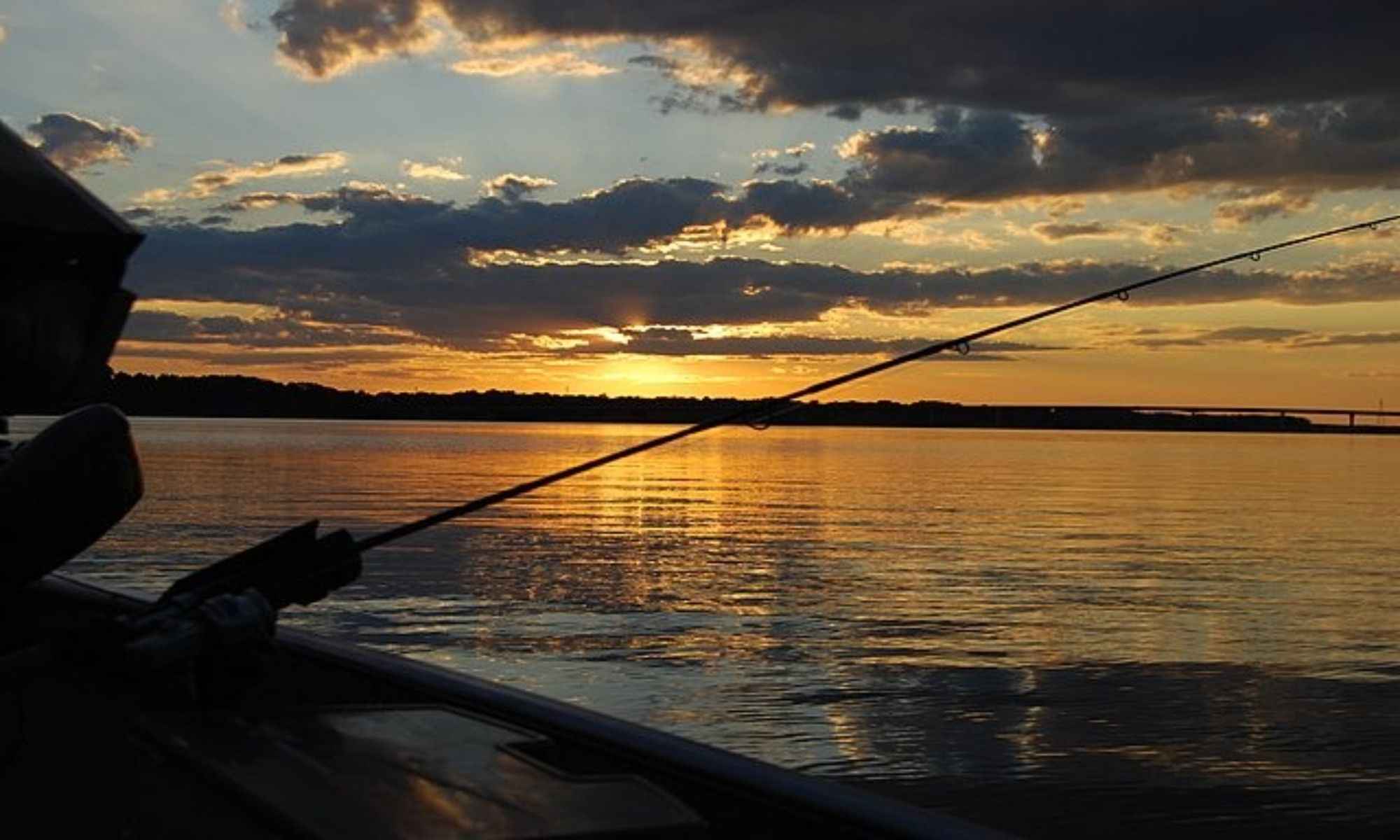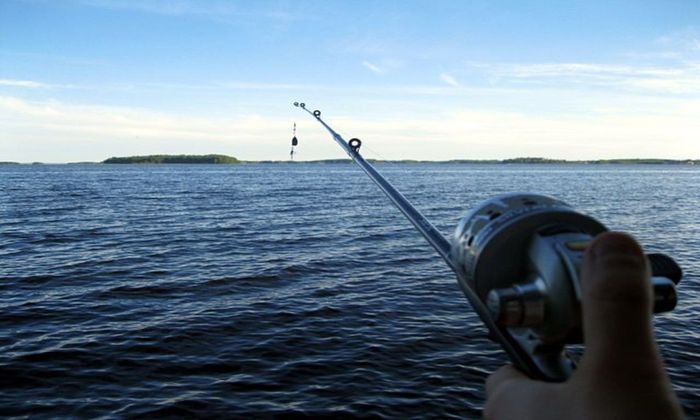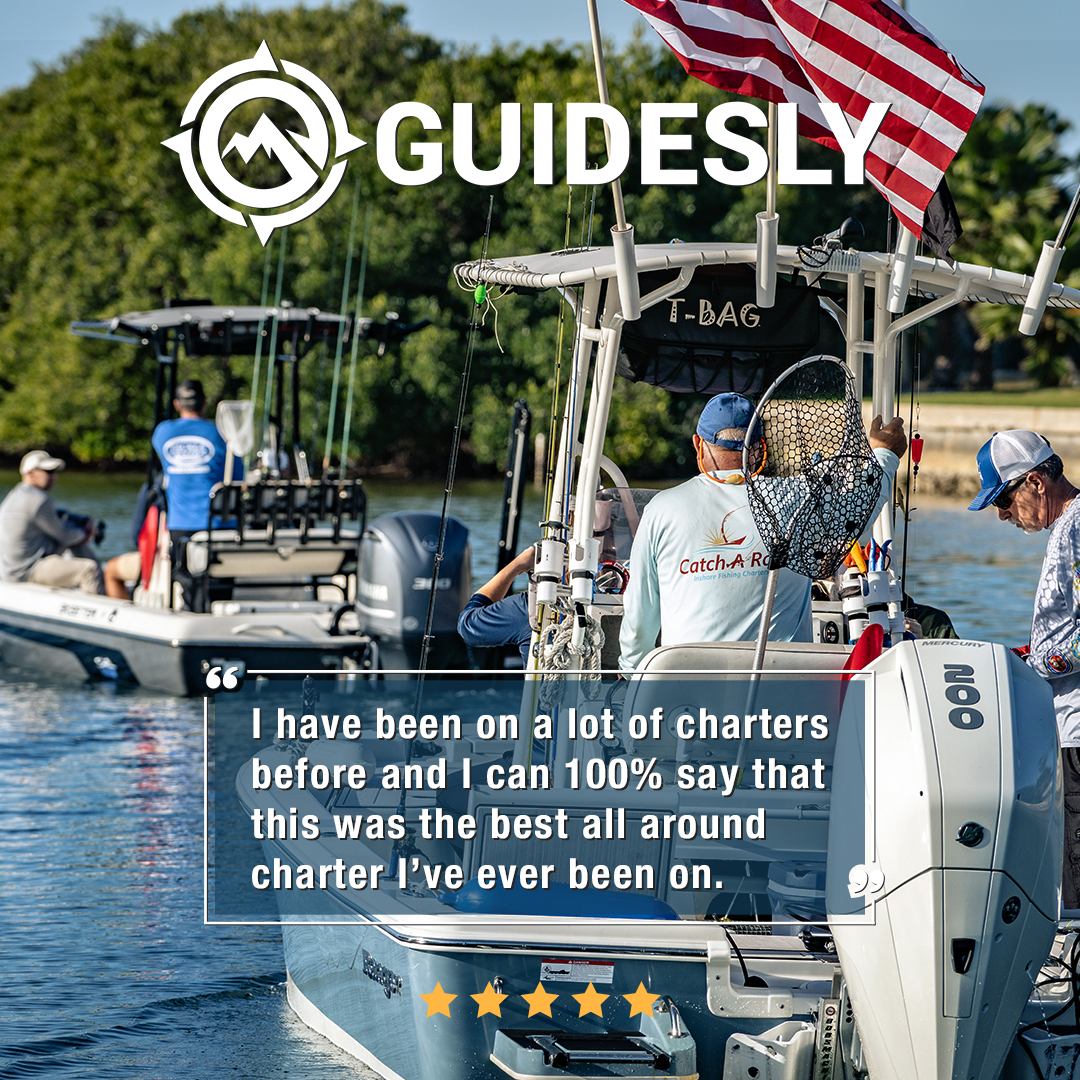Fishing Pole vs. Fishing Rods: What's the Difference
Fishing poles and rods are essential pieces of equipment for your fishing charters. Yet it is common for them to be mixed up. Find out which one is for you!

If you hang out with anglers often, you've probably overheard them discussing their rods and poles. Perhaps you've even pondered whether the two names mean the same thing. They seem identical at first glance, but are they the same?
Because of the reel and line guides, you can cast, jig, or trot with a fishing rod. Fishing poles do not have a reel or line guides; instead, the line is tied straight to the end of the pole.
To be more specific, read on and find out what makes the two fishing equipment different.

What Stirred up the Confusion?
Part of why people get these phrases mixed up is because "fishing pole" was the term most often used by their parents and grandparents, so that's what their generation learned to use. In the past, the primary tool for any angler was a line tied to a stick. To the average angler, modern fishing reels have only been around for a few hundred years. A fishing pole was unnecessary for those who couldn't afford more expensive equipment, so they caught fish using handlines or by tying a length of line to the end of a stick. Because of how often the phrase "fishing pole" is used in the United States, many bloggers do just that. I'm not perfect, and I've done it too. It's not terrible and helps us get the word out, but it does add to the chaos.
What are Fishing Rods?

Casting, jigging, trolling, and reeling in your fishing line all need a reel, and a fishing rod is defined as the pole linked to the reel with line guides. A fishing rod may be a single, seamless unit or come in many components that must be assembled before use. The typical rod length is between 4.5 and 12 feet.
Fishing rods may be found in various sizes and power levels, with many distinct kinds. A Casting rod, spinning rod, trolling rod, and fly fishing rod is the most common fishing rod.
Additionally, baitcasting rods have lines very near to the rod blank when it leaves the reel, and the line on baitcasting reels isn't prone to twisting and coiling, all of which allow the guide rings to be thinner than on most other equipment. Hence, they are well suited to fighting and controlling whether a big or a smaller fish.
Benefits of Using a Fishing Rod
A traditional rod and reel setup offers numerous benefits compared to less practical fishing poles. In this category are items such as; more displays now accessible, the more extended casting distance, and the capacity to rapidly cover large areas of water when fishing. Another thing the fishing rods have going for them is the capacity to support bigger fish of up to 120 pounds.
Take note that typically, the greater the length of the rod, the greater the distance one can throw. However, there is a restriction here: the bigger rods need more space to be used effectively. You will only get a little use out of them if you're trying to catch fish from a kayak or a bank bordered by trees. You'll need shorter rods to cast your lures effectively in such conditions.

When Should You Use a Fishing Rod?
There's a solid reason fishing rods have cornered the market and are the exclusive merchandise available at your neighborhood fishing shop. Although the best fishing rod still depends on what type of fishing trip you are going to. You can use a fishing pole for almost everything since they are incredibly adaptable.
You may troll your bait across the water, jig lures at the water's surface, or throw your bait far using a fishing rod.
The versatility of a fishing rod means that it may be found in just about every tackle store.
All the same, their purpose is to launch a lure at a distant target and then retrieve it through the water column in the hopes of eliciting a bite. So, a fishing rod is for you if you plan to cast your line in the deep sea. You can use this for your Rockport deep sea fishing with Nauti Hookers Guide Service, some deep sea fishing in Louisiana, or even deep sea fishing in Daytona beach.
But note that it is essential to match the lure's weight to the strength of the rod you're using. The Ugly Stik Elite, to provide just one example, is a superlight version. It can handle lures between 1/32 and 1/4 ounces in weight. A lure that is too light or heavy will have a different effect on the throw than one that is just right.
What are Fishing Poles?
A fishing line is tied to the end of a pole. However, unlike fishing rods, poles lack a reel seat and line guides. Typically, plastic or elastic fitting at the pole's tip holds the fishing line. A fishing line is usually a little more than a few feet long.
In addition, fishing poles often arrive in many parts and need installation before use. The most extended fishing poles I've seen are 50 feet! However, it is common knowledge that bars may become challenging to manage. So, fishing poles are great for casting your bait toward the fish since they are accurate and straightforward.
Fishing poles may be categorized into two broad categories: freshwater and saltwater. You may use this for your freshwater charters, specifically on the famous “freshwater fishing charters Florida.” If you are planning on going, you can opt for the help of Get'n Hooked Inshore Adventures in New Orleans, Reel Adventures in Jacksonville, or Morris Aquatic Charters in Crystal River. These two varieties of poles are identical save for their construction material. If you are planning to catch some saltwater fish, then take note. Since there are larger fish in saltwater, the poles must be constructed from a different material.
Benefits of Using a Fishing Pole
Fishing poles allow a more detailed and covert presentation of a lure or bait than rods.
A fishing pole is extended over the desired fishing area and then lowered to the bait or lure to the water below. You can easily maneuver around any reed or obstacle to place your bait precisely where you want it. Even in the world of bass fishing, this may have far-reaching consequences.
If you are planning on going to some Louisiana saltwater fishing charters with Tapped-Out Charters in Lafitte, Serigne's Fishing Charters in Saint Bernard, or Nock Em Dead Bowfishing Charters in Grand Isle, then a saltwater fishing pole is for you. These are more robust and can support more weight than their freshwater counterparts. In contrast to popular belief, freshwater fish do not tend to be lighter in weight than saltwater fish; hence, saltwater fishing poles are stronger.
As a bonus, if you are a skilled angler, you can make a precise cast every time that hardly makes a splash when it hits the water. Then there are those of us who are not royalty. With a fishing pole, you can cast your lure out over the water and bring it in with minimal splashing. If the fish are skittish, you may approach them stealthily using this method, assuming the pole doesn't scare them away.
When Should You Use a Fishing Pole?
When fishing near dense foliage or for topwater fish that are easily spooked, poles are your best bet.
Casting a fishing pole is the same whether you're fishing in freshwater or saltwater. If you want to catch fish with a fishing pole, you need to cast your line out over the water and gently drop your bait into the water. The trick used with fishing poles is designed to float on the water's surface or close to it.
A fishing rod comes in handy when there is a lot of greenery and tall shrubs. Unlike when using a fishing rod, your line won't get caught on the foliage when you throw.
Fishing Rod vs. Fishing Pole: Which is Better?
When it comes to utilizing a fishing pole or fishing rod, it boils down to personal choice.
A fishing rod is more popular internationally. Try going to your local fishing shop and ask for a good fishing pole; they will presume you're talking about a fishing rod.
A fishing rod can do the same thing as a fishing pole, but a fishing pole can't accomplish what a fishing rod can do. But you should be aware of tiny variances between the positives and drawbacks.




